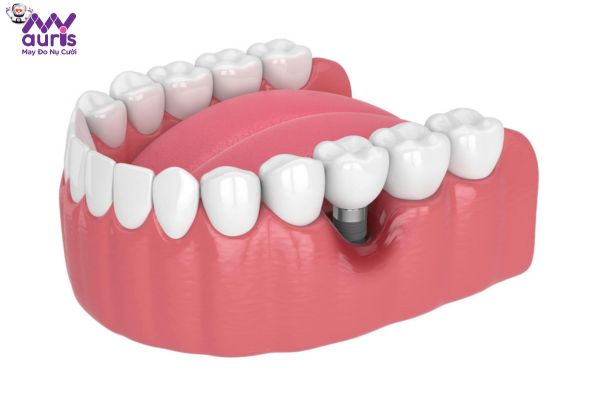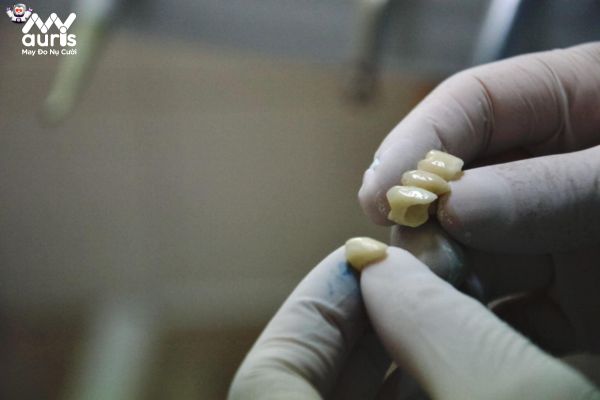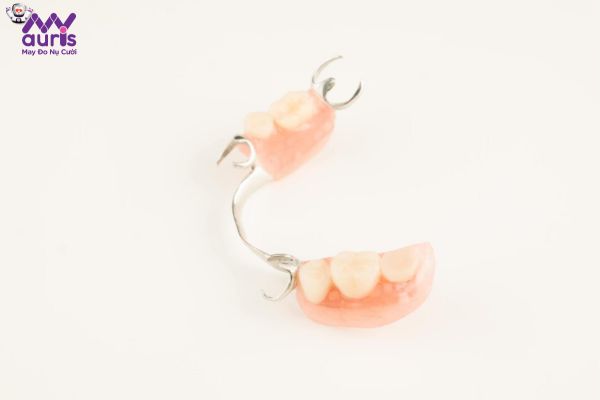Participate in military service to protect and contribute to building the national defense of the entire people – This is a noble responsibility as well as a sacred duty of every Vietnamese citizen. Currently, some regulations for military service have been changed, so many young people are interested and learning. Especially regarding the issue of denture implants, will they serve in the military? To get the answer, please refer to the following article from My Auris dentistry!
Regulations related to oral health in military service
Many young people wonder whether denture implants are normal military service or not? The answer is not simply “yes” or “no”, but depends on the ability to chew after dental restoration. With dentures, you can still serve in the military normally, as long as you meet criteria of type 5 or higher according to regulations of the Ministry of National Defense. The military service recruitment examination will assess your overall health, including oral health, to determine whether you are qualified to perform the service.
Based on the Regulations on oral health when performing military service in Joint Circular No. 16/2016/TTLT-BYT-BQP and Circular No. 16/2016/TTLT-BYT-BQP and Circular No. 36/2011/TTLT-BYT-BQP.
The ability to chew is the deciding factor
Oral health examination while on duty not only considers tooth loss or dentures, but most importantly evaluates chewing function. If denture implants have completely restored the chewing function, you are completely eligible to participate in military service.
Oral health standards in military service
Below is an oral health classification table based on Joint Circular No. 16/2016/TTLT-BYT-BQP, to help you self-assess your condition. Your condition:
| Illness | Score |
|---|---|
| Tooth decay | |
| Tooth decay grade 1-2, does not affect chewing ability | 2 |
| Having ≤ 3 teeth with grade 1-2 decay 3 | 2 | 4 |
| Loss of > 7 teeth (Including > 3 large molars or incisors, chewing ability remains | 5 |
Health classification according to points: (Circular 36/2011/TTLT-BYT-BQP)
- Type 1: 8 criteria scoring 1, serving in most armies and arms.
- Type 2: Has at least 1 target point2, serving mostly in armies and arms.
- Type 3: Has at least 1 target of score 3, serving in some armies and arms.
- Type 4: Has at least 1 target of score 4, serving limitedly in some armies and arms.
- Type 5: Has at least 1 target of score 5, serving some administrative work.
- Type 6: Having at least 1 indicator of score 6, exempted from military service.
Advice from experts:
To ensure the best oral health and not affect the performance of military service, you should have regular dental check-ups. Proper oral care and timely treatment of dental problems will help you maintain the ability to chew well and meet military requirements. If you have any questions about oral health and military service, contact your dentist or local military agency for specific advice.

Answers to whether dentures are required for military service no?
According to the regulations and admission criteria mentioned above, depending on each case and the condition of tooth loss, the health classification ranges from 2 to 5. Therefore, if you fall into any of the cases of tooth loss mentioned above, whether you are on duty or not, you are still guaranteed to meet the oral health conditions to participate.
At the same time, exemption from military service is not only based on tooth loss, but also depends on the assessment of chewing health and other overall health criteria. Only in cases where the health condition has one indicator of type 6 is one not eligible for admission to military service.
Methods to support the restoration of missing teeth on the jaw >
If you have dentures and are not serving, this is a situation where you still meet the criteria to participate, and at the same time you are not exempt from military service based solely on the point of tooth loss. Therefore, when losing teeth, it will need to be fixed as soon as possible. Specifically, there are 3 popular methods to help restore lost teeth that are being chosen by many people.
Dental Implants

Implant is the most advanced and longest-lasting method of restoring lost teeth today. Implant teeth have a structure that includes Implant posts, Abutment joints, and porcelain crowns. All will be linked together and integrated with the jawbone.
Implants have many outstanding features, supporting the restoration of chewing ability and bringing high aesthetics. At the same time, Implant technology also helps limit bone loss when teeth are lost. Implants can replace lost teeth in many different locations, even with full jaw implants.
Ceramic dental bridge

Ceramic dental bridge This is also a technique used by a large number of people with tooth loss. The doctor needs to grind two adjacent teeth to create supporting pillars. Next, the porcelain bridge is attached to replace the lost tooth.
This method has many advantages, helping to stabilize and ensure good chewing ability, bringing high aesthetics to the face. However, using a porcelain bridge can easily cause the jawbone to disappear over time, causing many serious complications. At the same time, porcelain bridges do not have as long a lifespan as dental implants.
Removable jaws

Removable dentures are This method has been used for a long time and is still chosen by many people today. Removable dentures are popular because they are cheap, restore lost teeth quickly and are convenient to remove. However, currently this method is mainly used for older people, who do not require high chewing ability and aesthetics. As for young people, you need to consider before deciding to choose restoration with this method.
Removable dentures are currently made including dentures installed on the fake gums, a connecting part to hook onto real teeth. Because the method to fix missing teeth was established a long time ago, removable dentures still have many limitations. The ability to chew cannot be restored for sure and jaw bone loss has not been prevented.
In short, whether or not you can use dentures to serve the country, you can still fully participate in serving the Country, only if your case falls into category 6 as informed about the above process. My Auris dentists also recommend that if you unfortunately lose teeth, please see us immediately for assistance in checking and planning a safe treatment plan. This will avoid complications and negative effects on your health next.
Yen Nhi





